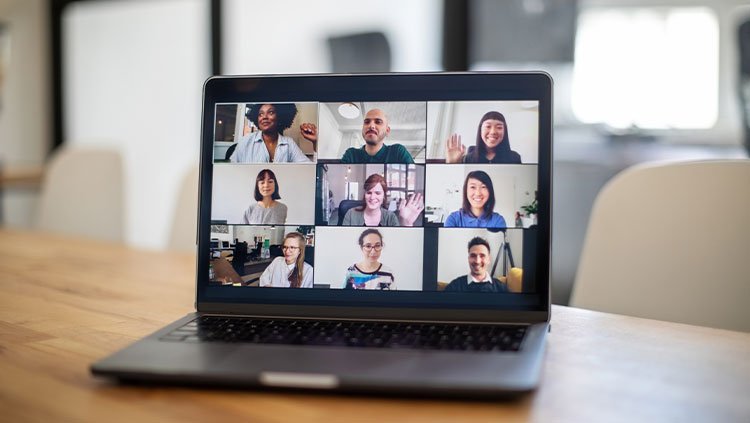Loading component...
How to build a team in tricky circumstances
Content Summary
- COVID 19
- Business management
Loading component...

This article was current at the time of publication.
Before lockdown, Auckland-based Angus Ogilvie FCPA, managing director of Generate Accounting, says he would have described his business as "a typical accounting practice with four team members".
"Everyone turned up at 8.30am, did an eight-hour day, and went home," Ogilvie says.
"We'd always believed it was possible to work remotely but had never done so. With COVID, we were forced into a situation where we had to make it work."
Ogilvie's business is 100 per cent paperless, which made the transition from office to home easier.
For his team, flexible working has delivered clear benefits, especially cutting at least two hours from the daily commute. It has now been adopted throughout the practice.
"Everyone is in the office on Mondays for team meetings, training, and coaching and — except for me — operates on a rotating schedule for the remainder of the week," he says. "Most of my job is interacting with clients in the office.
"I think if I'd relaxed the rules completely and said choose when you turn up to the office, I would never see anyone. But it's good to catch up regularly and so, in addition to an office roster, we have a '10 minutes at 10am' with the whole team every day to identify roadblocks and see how I can clear those."
The practice management system also records where the staff is up to with any given job, and as a CPA Ogilvie reviews all work before it is despatched.
"There's no difference in that regard," he says. "It's a high-trust model based on mature staff who value loyalty and productivity."
During the lockdown, Ogilvie offered the team free access to counselling and has since added private health insurance as an extra benefit.
"As a small firm, without the dazzle of the Big Four, it's important to really look after your team," he says.
Bedding down new staff remotely
For Brent Szalay FCPA, managing director of SEIVA, an influx of work before June meant hiring four extra staff, including a human resources manager, bringing the team total to 22.
"We hired them over Zoom, and they joined us when all staff were forced to work [from] home because of the lockdown, rather than in our office in Southbank, Melbourne," Szalay says.
"Fortunately, we were completely paperless and ready to go. However, because of the pandemic and remote working, we needed to focus on building team capability through training, development, and a culture of trust."
As a firm of predominantly young employees — most aged under 40 — a culture of having fun is also an important attribute of the firm, which manages clients in professional services, the tech sector, construction and trades.
"We're waiting to see what we can do when we do get together and meet some of our people for the very first time," Szalay says. "Hopefully, that will be over a few drinks for Christmas."
Meanwhile, the firm has been using Zoom and Microsoft Teams for communication between staff, Slack for staff emails, the cloud-based accounting software platform Xero for business, and Trello to keep track of everything from the big picture to small details.
To shore up team morale, there are also monthly performance and wellbeing meetings and a greater number of team meetings overall.
"We've also been doing a lot of educational webinars, both for clients and the team," Szalay says.
Keeping communication lines open
Sydney-based Sarah Lawrance CPA, managing director of cloud-based company Hot Toast, has always held the view that remote teams can work effectively.
The five-member accounting and CFO team service clients in industries including television, production, advertising, technology, and marketing.
"We have been spread across New South Wales, Western Australia, and South Australia since our inception five years ago," Lawrance says.
"I always knew I didn't want a physical office that everyone felt they had to come into, although our staff do use co-sharing office spaces if they want to."
Maintaining open lines of communication is paramount, she says.
"You can't do too much conversation. First thing in the morning, we have daily huddles and we were already on Slack.
"Everything we do in our firm — our clients and how we deal with them and so on — is also on video. You can't run a distributed team without that level of detail and process."
In one of the firm's busiest years, regularly touching base has been even more important, especially from a personal wellbeing perspective, she says. "No one has been through a crisis at this level."
For Christmas, the office will be closed but, in March 2021, the firm is planning a get-together. According to Lawrance, the lockdown has helped her to better understand the importance of face-to-face meetings.
Szalay agrees: "What's missing in the whole working-from-home equation is those real water cooler conversations, which we believe are a critical part of communication."
So too does Ogilvie, who will be closing the office a couple of days before Christmas, when the team traditionally goes out for a long lunch.
"I think everyone's had a gutful of 2020 and just want to put their feet up and go on holiday."
Loading component...
Discover more
COVID-19’s impact on commercial insurance
29 November 2021 | Episode 9
- COVID 19
- Business management
Published on29 min read timeTop tech tools for a flexible workforce
Are accounting firms giving their employees the tools to work well?
- COVID 19
- Business management
article·Published onThe key to managing remote work staff and clients? Be prepared
Two public practitioners share their views on how to manage when times are tough
- Business management
- COVID 19
article·Published on
COVID-19 support
Resources, guides and information to support you and your clients
- COVID 19
Lock out and lockdown: your guide to the 2021-22 Tasmanian budget
Media Release | 26 August 2021
- COVID 19
Health and wellbeing during COVID-19
Access resources to support the physical and mental wellbeing of you, your team and your clients
- COVID 19

